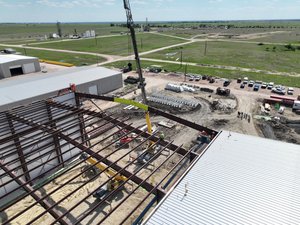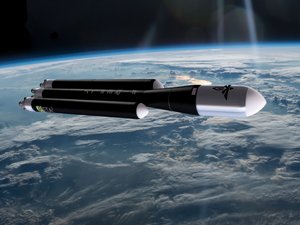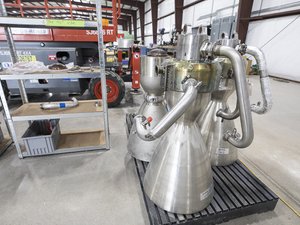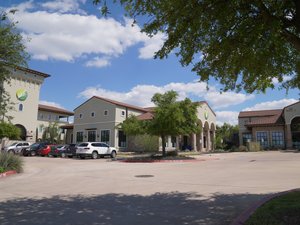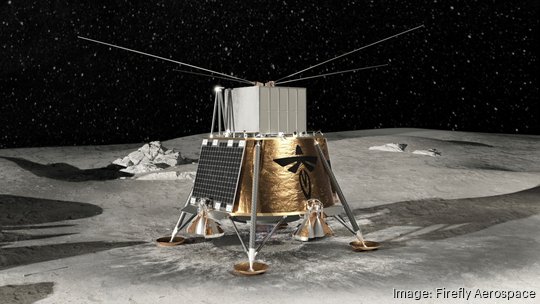
A Cedar Park-based rocket maker is purchasing for $3.8 million the remaining pieces of the failed satellite launching spinoff of Richard Branson's Virgin Galactic space tourism business.
Firefly Aerospace Inc. has agreed to purchase the remaining assets — inventory at two California-based production facilities, and pieces temporarily stored at a third — as part of the Chapter 11 bankruptcy of Virgin Orbit Holdings Inc., according to a June 15 bankruptcy court filing. The purchase is expected to close no later than June 30.
The filings indicate Firefly will buy raw materials, work in process and finished goods from Virgin Orbit's facilities in Long Beach and pieces stored at a facility in Mojave, California, including engines and parts in storage or on test stands. The deal does not include Virgin Orbit assets that were previously auctioned off, including a mobile clean room trailer, intellectual property and a Boeing 747 jet.
Firefly said in a June 20 statement to Austin Business that it will not use all of the inventory and will provide additional information to any parties that may be interested in purchasing some of it.
"Firefly strategically bid and purchased the Virgin Orbit inventory for the significant cost savings on common off-the-shelf components that we use in our product lines, and the benefit of eliminating the supply chain lead-times associated with critical flight components," the statement said.
The move comes as Firefly continues to ramp up investment in facilities on the outskirts of Austin. The company, which builds rockets for carrying cargo into space, is pumping tens of million of dollars into expansion at its Cedar Park headquarters and its "Rocket Ranch" testing facility in Burnet County.
Firefly executives previously told ABJ Journal the expansion will help facilitate "immediate and future growth" and give it the manufacturing capacity to prepare for more rocket launches in the next few years.
The company — which employs more than 550 and has 70-plus open positions on teams from propulsion to business operations — recorded its first successful rocket launch in October and is preparing for more. Firefly has garnered several government contracts, including most recently part of a $112 million contract with NASA to carry research payloads to the moon in 2026.
At its 45,000-square-foot Cedar Park headquarters at 1320 Arrow Point Dr., a $3 million expansion will be aided by $1.5 million in incentives from the city of Cedar Park. Executives previously said the company is adding a second floor to the HQ to accommodate an expanded workforce, while also adding a mission control room to support upcoming lunar missions with its Blue Ghost lunar lander and space utility vehicles.
The company plans to deliver 13 government and commercial payloads through the Blue Ghost agreement in 2024, while the recent NASA contract will help pay for a second mission to deliver three of the space agency's payloads to lunar orbit in 2026.
Executive also previously said they plan to invest roughly $50 million in the Rocket Ranch, located at 281 County Road 210 — technically, right outside Briggs city limits and about 25 miles north of the Cedar Park HQ. A Feb. 9 filing with the Texas Department of Licensing and Regulation indicated the 75,000-square-foot project will include "two connected pre-engineered metal buildings of manufacturing space," plus three floors of office space and storage. Construction is supposed to be completed by December 2025.
Firefly executives said they are doubling the size of the facilities on the 200-acre site, which will allow it to ramp up manufacturing and testing of its Alpha small payload rocket as well as a medium-sized launch vehicle being co-developed with Northrop Grumman.
The Alpha launch vehicle will support government and commercial missions in 2023, including an upcoming responsive space mission awarded by the U.S. Space Force. Alpha plans to launch every two months.
The first launch of Firefly's larger, medium launch rocket is scheduled for 2025. New buildings and test stands for the medium launch vehicle, or MLV, are expected to be operational by the end of the summer.
The bankruptcy sales mark an unceremonious end for Virgin Orbit, which aimed to provide air-launching of satellite rockets from a modified Boeing 747. The company went public in 2021 and at the time was valued at $3.7 billion, according to CNBC. After a pair of launch failures, the company in 2023 laid off roughly 85% of its 675-person staff and filed for bankruptcy in May, according to Reuters.
Space News reported that the assets acquired by Firefly were what was left over from a May 22 bankruptcy auction. Virgin Orbit’s Boeing 747 and related equipment were acquired by Stratolaunch LLC; the company’s main production facility in Long Beach was sold to Rocket Lab USA Inc. (Nasdaq: RKLB); and the Mojave test site was purchased by Launcher. A liquidation company, Inliper Acquisition LLC, bought the machinery and equipment in a second Long Beach facility.
Negotiations continued after the auction with several parties, concluding with the $3.8 million offer from Firefly, according to Space News. The filings did not disclose the identities of the other parties involved in the discussions for the assets.
Paul Thompson contributed reporting.
